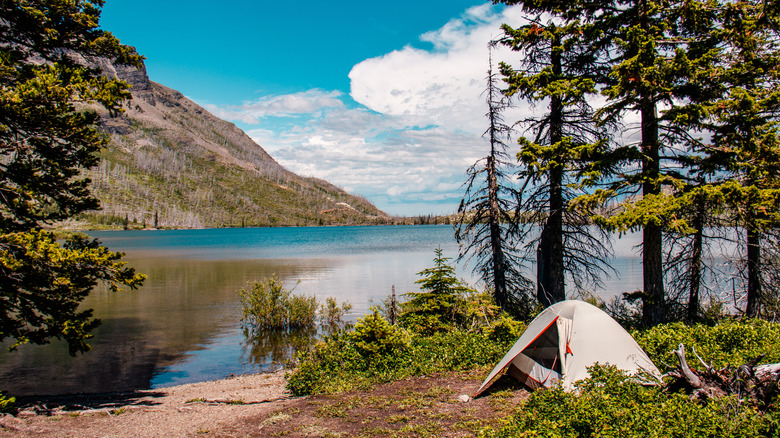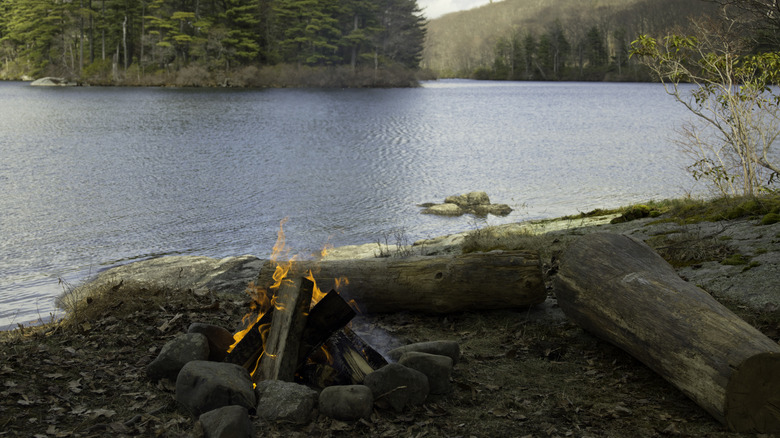The Possible Big Drawback Of Camping In National Parks To Consider Before Planning A Trip
Visiting the beloved national parks of the United States takes a bit of pre-planning. Some of the most visited national parks require reservations and you will likely want to spend more than one day exploring too, adding more to your prior research. Thankfully, most national parks in the U.S. have onsite lodging. Camping is a popular lodging option for the outdoorsy looking to visit the most beautiful places in America, but there is a potential drawback to camping at a national park.
Iconic yet endangered wildlife live within national park borders as well. Park staff, scientists, and park enthusiasts obviously want to preserve these awe-inspiring places and animals as much as possible. This means implementing potentially inconvenient rules surrounding campfires, accessible space, and perhaps even permits for certain types of camping. While most campsites around the country have rules, those in national parks might be extra stringent and well-enforced. You could be vying for space availability in more popular parks too, which can impede upon your nature escape.
Check for burn bans when planning your national park camping trip
Wildfires have frequently made global news headlines in recent years. To prevent them, national park staff want people to be extremely cautious when making campfires. If one is left unattended or built too close to plant life, even skilled campers could find themselves in a dangerous situation — and be endangering the other valuable life forms in the park. Make sure to look on the park's website for any burn ban alerts or speak with park rangers to see if you are allowed to make a fire.
Aside from campfire restrictions, space can be restricted for national park campsites too. Staying within campsite boundaries is imperative as national parks share their territories with wildlife. Bears, bison, mountain lions, and more can be dangerous and are often protected by law. Campsite rangers may ask you to abide by quiet hours to keep the national park experience peaceful for all living creatures around you.
If you plan on backcountry camping (camping in a more remote place), all national parks in the U.S. will ask for a permit. You will likely need to make a reservation for backcountry camping too. Recreation.gov is an all-encompassing resource for trip planning from booking your campsite to camping permits.

